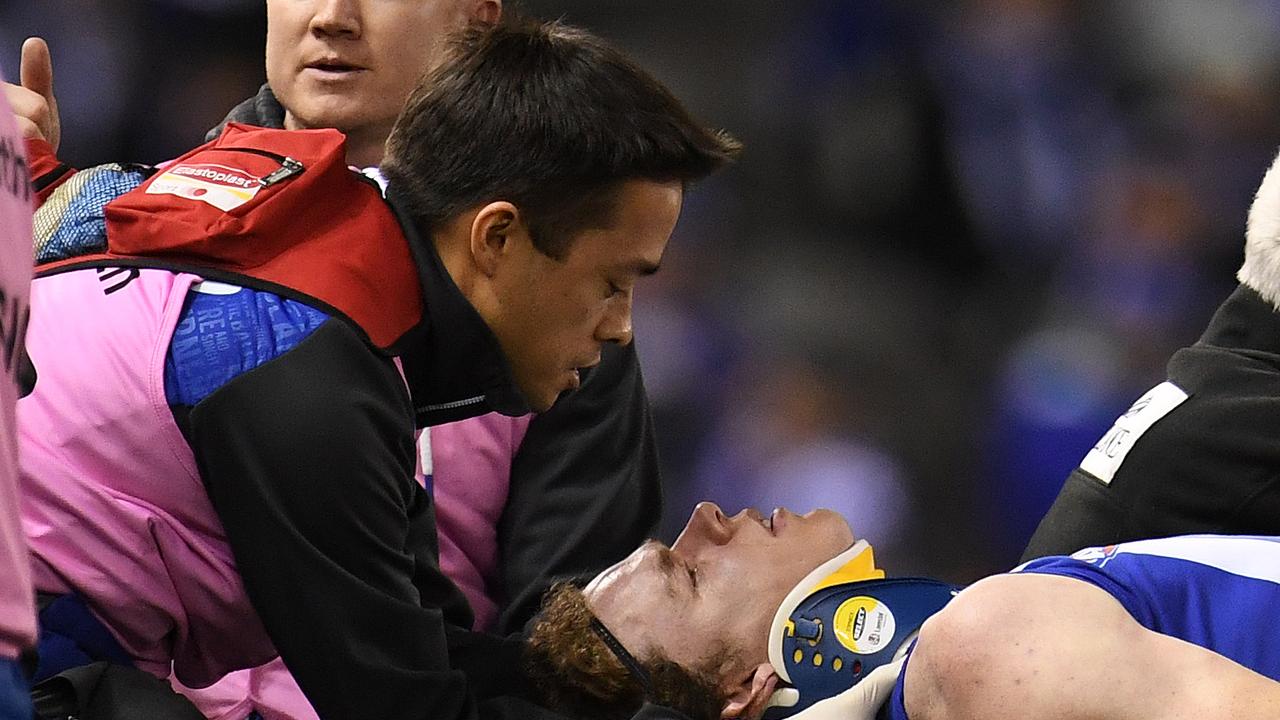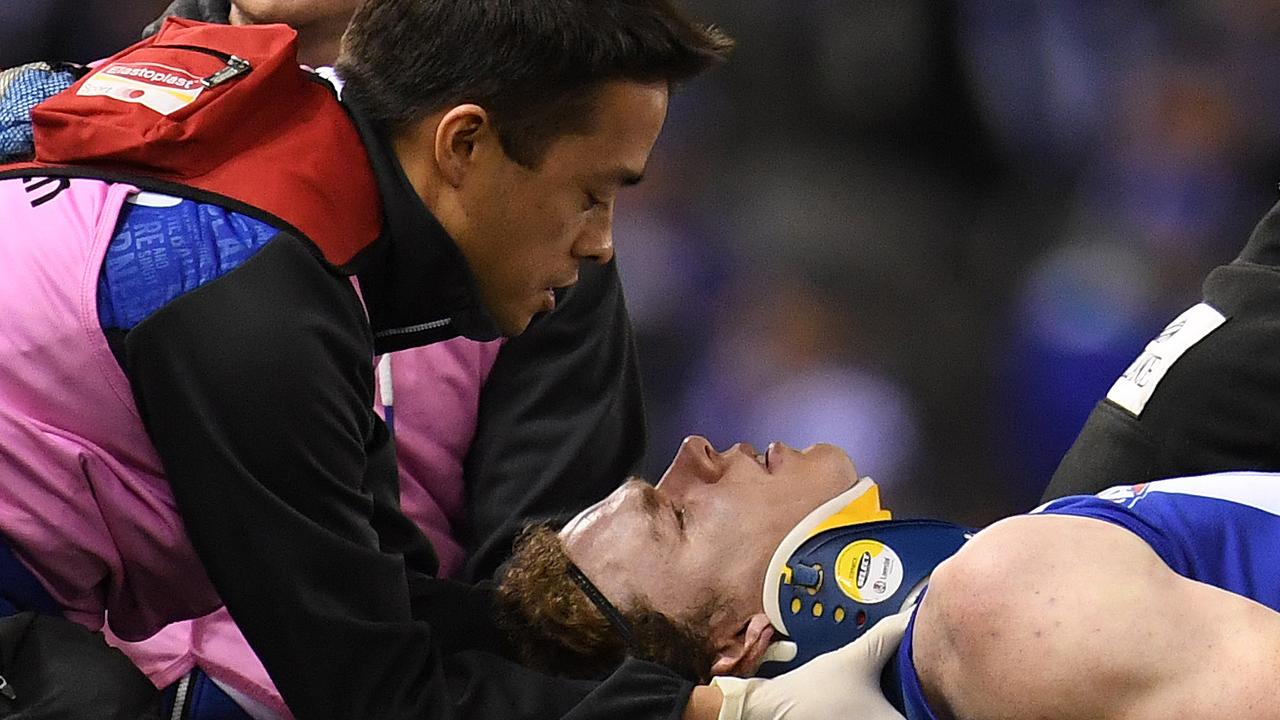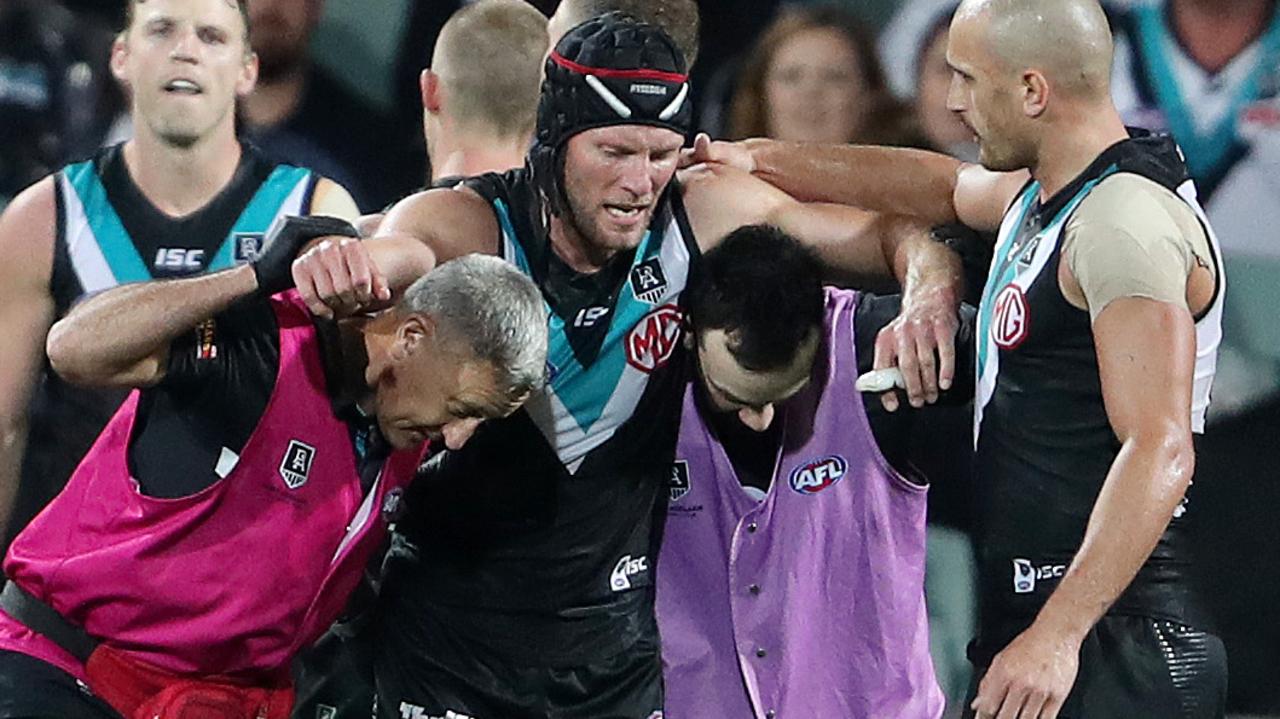AFL officially acknowledges link between head trauma and CTE but not deterioration in mental health
The AFL is hedging its bets on how much damage CTE causes in individuals but is yet to be convinced of its impact on mental health deterioration.

The AFL has officially acknowledged the link between head trauma and degenerative brain disease CTE in its submission to a Senate Inquiry into concussions and head trauma in contact sport.
But the league has hedged its bets on how much damage chronic traumatic encephalopathy causes in individuals as it prepares for a $25 million long-term study into the issue.
CTE is the brain disease found in AFL legend Polly Farmer, St Kilda captain Danny Frawley and former Richmond player Shane Tuck.
As Australia’s biggest sport the league’s submission has been keenly anticipated at a Senate inquiry that has already interviewed medical experts from the nation’s biggest codes.
The league’s submission was lauded by international concussion expert Chris Nowinski, who said it would put pressure on other sports and medical bodies to publicly acknowledge repeated head knocks could cause traumatic brain injuries.
The league said in its submission that it was drawing on a statement linking head knocks and brain disease from the National Institutes of Health, America’s medical research agency.

The league’s submission states: “A) The AFL acknowledges that there is an association between head trauma and neurodegenerative disease (including chronic traumatic encephalopathy – neuropathological change - CTE-NC). B) The AFL supports and adopts the recent statement on CTE-NC by the National
Institutes of Health (being part of the U.S. Department of Health and Human Services and the nation’s medical research agency).”
CTE can only be found post-mortem after examination of a patient’s brain.
The league’s submission made clear it is yet to be convinced of the direct correlation between CTE caused by repeated head knocks and any deterioration in mental health in sufferers.
“The association between head trauma and long-term psychological health is less clear,” the submission reads.

“While depression and anxiety are common symptoms associated with traumatic brain injury (TBI), they are also common in the general community and, it remains unclear to what extent pre-morbid mental health conditions represent confounding factors in outcome of injury.
“There are conflicting results in some of the research. In a recent, large cross-sectional study, former professional soccer players had half the risk of hospital admission for common mental health disorders than matched controls, and there were no differences in the rate of suicide.”
The league said it was not yet proven that CTE led to clinical symptoms: “The presence of CTE-NC at autopsy does not necessarily mean that the individual exhibited any clinical symptoms. This is especially true for lower severity of CTE-NC.”
The league’s submission also cited recent studies as it stated the prevalence of CTE in contact sports “remains unclear”.
It cited an American brain bank study where only 32 per cent of athletes identified with CTE and an Australian brain bank study where only five of 636 brains examined had CTE.
The league has committed a minimum of $25 million to its own longitudinal study but in its submission conceded the challenges of signing up participants from the AFL and AFLW.
“This research program will be offered to all AFL and AFLW players, however, participation will require provision of informed consent.
“The success of this research program to answer critical questions regarding risk exposure and potential long-term consequences will be largely dependent upon player participation.”
More Coverage
Originally published as AFL officially acknowledges link between head trauma and CTE but not deterioration in mental health





